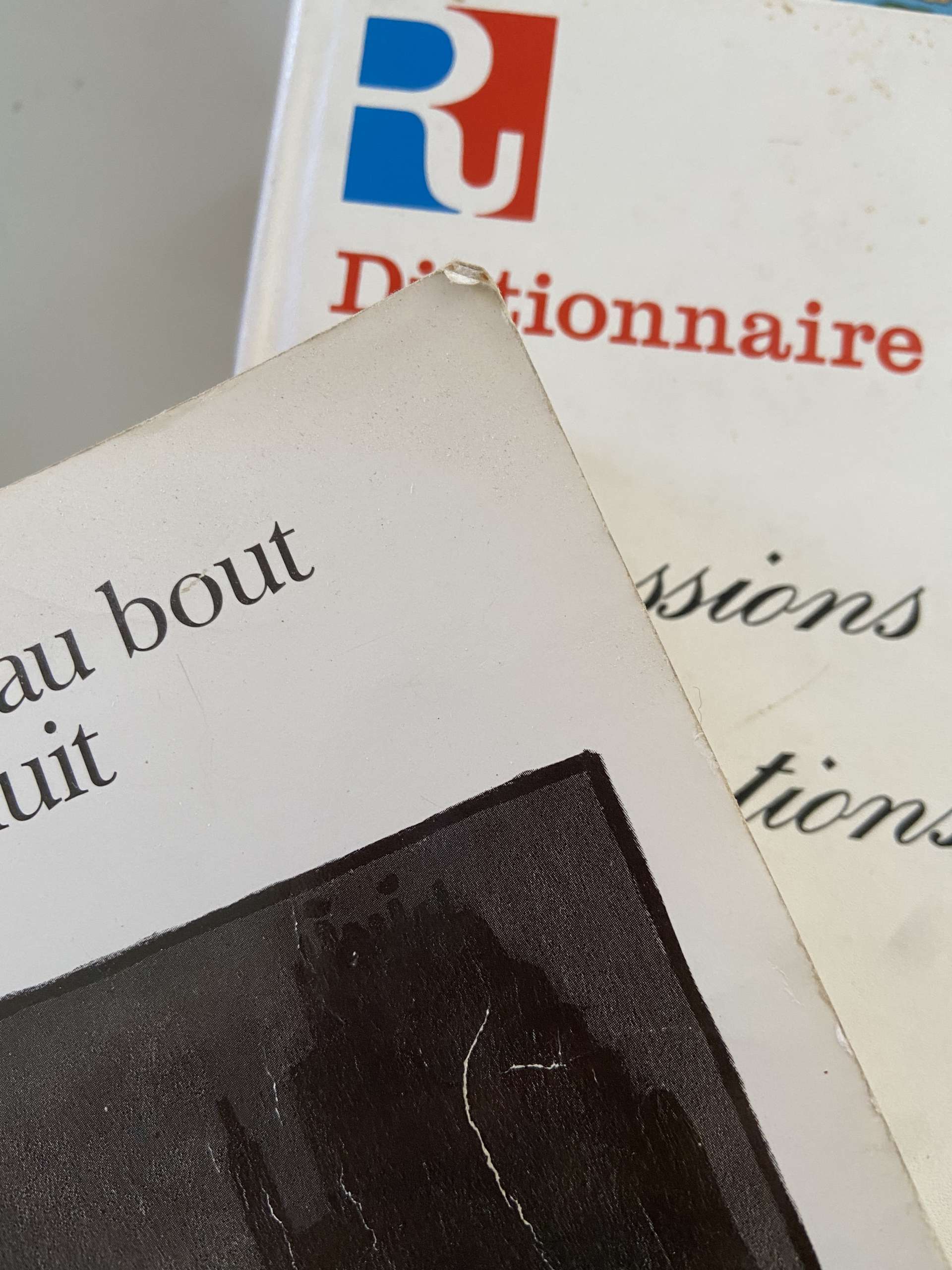It started with me saying, “I’m done.”
Then another person in the meeting said, “In French there is an expression: ‘Je suis fait comme un rat.’”
Being a speaker of French, but not, as is said, a native one, I heard the phrase echo in my head in these words, “Je suis cuite comme un rat.” Then, of course I had to look up the expression, first online, and then in one of my favorite reference books (Dictionnaire des expressions et locutions) and then in one of the source books it cited, which I happened to have hanging around since about 1997 (Voyage au bout de la nuit) and in which I happened to have listed in my list of themes on the inside back cover the word “rat.”
And here is where everything started to go topsy-turvy, inside-out, upside-down, turned around. Because when I said I was done, I meant nothing more than literally that. I had no more to say, no subject of conversation to bring up. Meanwhile, I wondered if the person who thought of the French expression was sending me a veiled message: because why would he imply the nefarious with the expression “fait comme un rat” that translates as “cooked”? Was I cooked? What had I done suspect? Because while I wasn’t sure what “fait comme un rat” meant, I sure was certain of the cooked one in “cuit comme un rat.” It meant—I was now convinced—that something or someone had come up short.
All this leads me to the next thing I read, an article on how the blog is not dead, or, one could say, done. My conclusion from the article is that if blogs are dead, so are conversations. And I really hope they are still alive and kicking, pandemic and computer screens aside. I need for them to be alive. I need to be able to share my musings on idiomatic entanglement with my multilingual group of colleagues. It’s the unravelling that needs to be done for me to stay alive.




